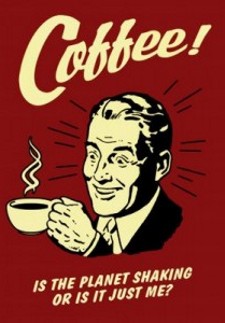We’ve already heard, from the medical community, that Coffee and Tea aren’t as bad for us in some ways) as we were led to believe through the 1990s. Diet Soft Drinks are another source of caffeine that we’ve traditionally been told to avoid. What can we do to manage our caffeine intake and still get our jolt?
According to a recent story on Yahoo!’s Healthy Living blog, we can help mitigate the effects of caffeine on our systems in a number of ways you may not have considered.
For instance, don’t take vitamin or mineral supplements with caffeinated beverages. The caffeine may make it harder for your system to absorb the supplements.
Don’t add ilk to your tea. That could decrease the good effects of the drink. Instead, use spices or goof old fashioned lemon and honey. Or, better yet, drink herbals teas that count as supplements, themselves!
Don’t make the mistake of thinking that the stronger you brew your tea or coffee, the more good it will do you. For instance, if you make your coffee too strong, you’ll increase the concentration of the stuff that’s bad for you and overdo the caffeine, too. If you steep your tea more than three-to-five minutes, you might be destroying the valuable anti-oxidants the beverage provides.
Now… There’s always the moderation rule. A cup of coffee will pick you up, but, unless you’re heavily addicted, two or more could have your teeth chattering and result in lost sleep.
And one more moderation-oriented tip: Drink the coffee that restaurants serve after dinner in the evening. It’s called Light or Medium City Roast, which is somewhat less strong and, therefore, smoother than what you are probably used to getting at the coffee specialty shops. You’ll be able to have a cup, or two, and still sleep at night.
~ Maggie J.


